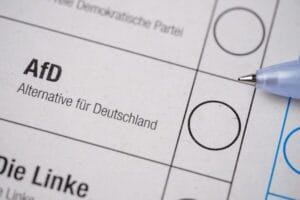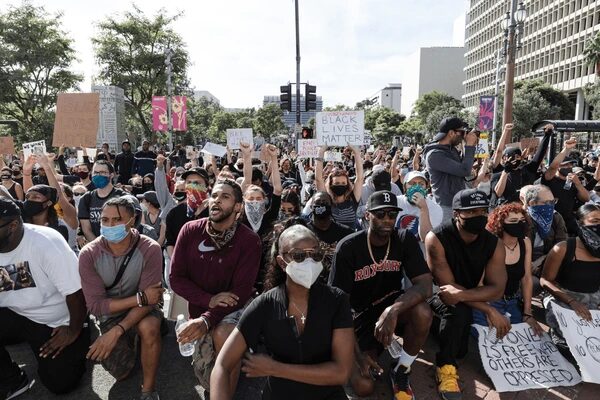Discover 7 alarming facts about the AfD being officially labeled a right-wing extremist group by the Federal Office for the Protection of the Constitution, what it means for Germany’s political future.
7 Alarming Facts About AfD Being Confirmed as a Right-Wing Extremist Group

The Alternative fur Deutschland (AfD) party is facing one of the biggest political challenges in its history. In 2024, Germany’s Federal Office for the Protection of the Constitution (BfV) officially confirmed that the AfD is a right-wing extremist group. This decision has created shockwaves across German and European politics. Let’s look at seven important facts that explain what happened, why it matters, and what it could mean for the future of Germany’s democracy.
1. AfD is Now Officially Classified as a Right-Wing Extremist Group

In 2024, Germany’s internal intelligence agency, the Federal Office for the Protection of the Constitution (BfV), labeled the AfD as a “right-wing extremist endeavor.” This means that German authorities now see the party as a serious threat to the country’s democratic system.
This classification gives the government the legal power to:
Monitor the party more closely
Use phone tapping
Conduct undercover investigations
This increased surveillance mainly targets the AfD’s youth wing and regional groups that are believed to be especially radical. The BfV found racist, antisemitic, and anti-democratic speech coming from many members of the party, and said the AfD often promotes hatred and attacks on human dignity.
2. The Ruling Came After Years of Investigation

The BfV didn’t make this decision overnight. German authorities spent years collecting:
Public speeches and documents
Internal communications
Evidence of links between AfD members and known far-right extremists
After studying this evidence, the BfV concluded that the Alternative for Deutschland works against Germany’s basic democratic values. The party now joins other far-right groups, like the NPD, that have previously been labeled extremist. This new status allows the state to treat the Alternative for Germany differently than regular political parties—despite the fact that it still holds elected positions in Germany’s parliament.
3. Legal Discussions Have Begun About Banning the AfD

Since the AfD was declared extremist, there have been growing calls to ban the party completely. Germany’s constitution allows a political party to be banned if it’s proven to threaten democracy. But only the Federal Constitutional Court can make that decision. Currently, legal experts and politicians are:
Discussing if enough evidence exists to start a court case
Preparing for possible lawsuits
Debating what banning the AfD would mean for democracy
If the court rules against the Alternative fur Deutschland, it could lead to the complete shutdown of the party—something that has never happened to a major elected party in post-war Germany.
4. From “Suspected” to “Confirmed”: What Changed?

For years, the Alternative for Deutschland was under suspicion of being extremist. But in 2024, the BfV officially confirmed it. Why? Key reasons included:
AfD groups in Thuringia and Saxony-Anhalt grew more radical
Some members were caught working with neo-Nazi organizations
AfD members helped organize protests that turned violent
Hate speech and threats against refugees and minorities increased
This clear pattern of behavior gave the BfV the final proof it needed to move from suspicion to confirmation. DW News reported that this decision followed growing links between AfD leaders and far-right groups.
5. Alice Weidel’s Defense and Ongoing Controversy

Alice Weidel, one of the party’s top leaders, has denied that the AfD supports extremism. She argues that the party is simply defending Germany’s values and protecting national identity. However, critics say that:
Her speeches often include nationalist and anti-immigrant ideas
She refuses to clearly reject extremist members
She gives space for radical voices to grow within the party
This makes Weidel a highly controversial figure. Supporters admire her tough stance, but others say she is helping spread dangerous ideas.
6. Government Officials Respond Strongly

Nancy Faeser, Germany’s Interior Minister, fully supported the BfV’s decision. She said it was necessary to defend Germany’s democracy, stating:
“Democracy must defend itself when it is under threat from within.”
Ralf Stegner, a senior member of the SPD, also spoke out. He urged the government to move quickly toward a court decision that could ban the Alternative for Deutschland. These strong reactions show that many top politicians are deeply worried about how the Alternative for Deutschland could damage the country’s political system if left unchecked.
7. What This Means for Germany’s Future

This situation raises big questions for the future:
Will Alternative for Germany voters see this as proof of corruption or proof of justice?
Can democracy remain strong while also silencing extremist voices?
What will happen in the next national elections?
The Alternative for Deutschland still has support, especially in rural areas and among voters who feel left behind. Some people see the BfV’s ruling as unfair or political. But many others believe it is long overdue and needed to protect Germany’s values. If the AfD is eventually banned, it will be the first time since World War II that an elected party is removed from German politics. That would be a major event in European democracy.
Conclusion
Germany is now facing a major test of its democratic strength. Declaring the Alternative for Deutschland as a right-wing extremist group is a bold move that aims to protect the country’s freedom and values. But banning a political party is a serious decision and could affect public trust in the system.
As the legal process continues, all eyes are on how Germany handles this situation. Will it be remembered as a defense of democracy, or as a political overreach? One thing is clear: the AfD’s future—and the future of German politics—has entered a new and uncertain phase.





Your point of view caught my eye and was very interesting. Thanks. I have a question for you.
Thank you for your sharing. I am worried that I lack creative ideas. It is your article that makes me full of hope. Thank you. But, I have a question, can you help me?
Thanks for sharing. I read many of your blog posts, cool, your blog is very good.